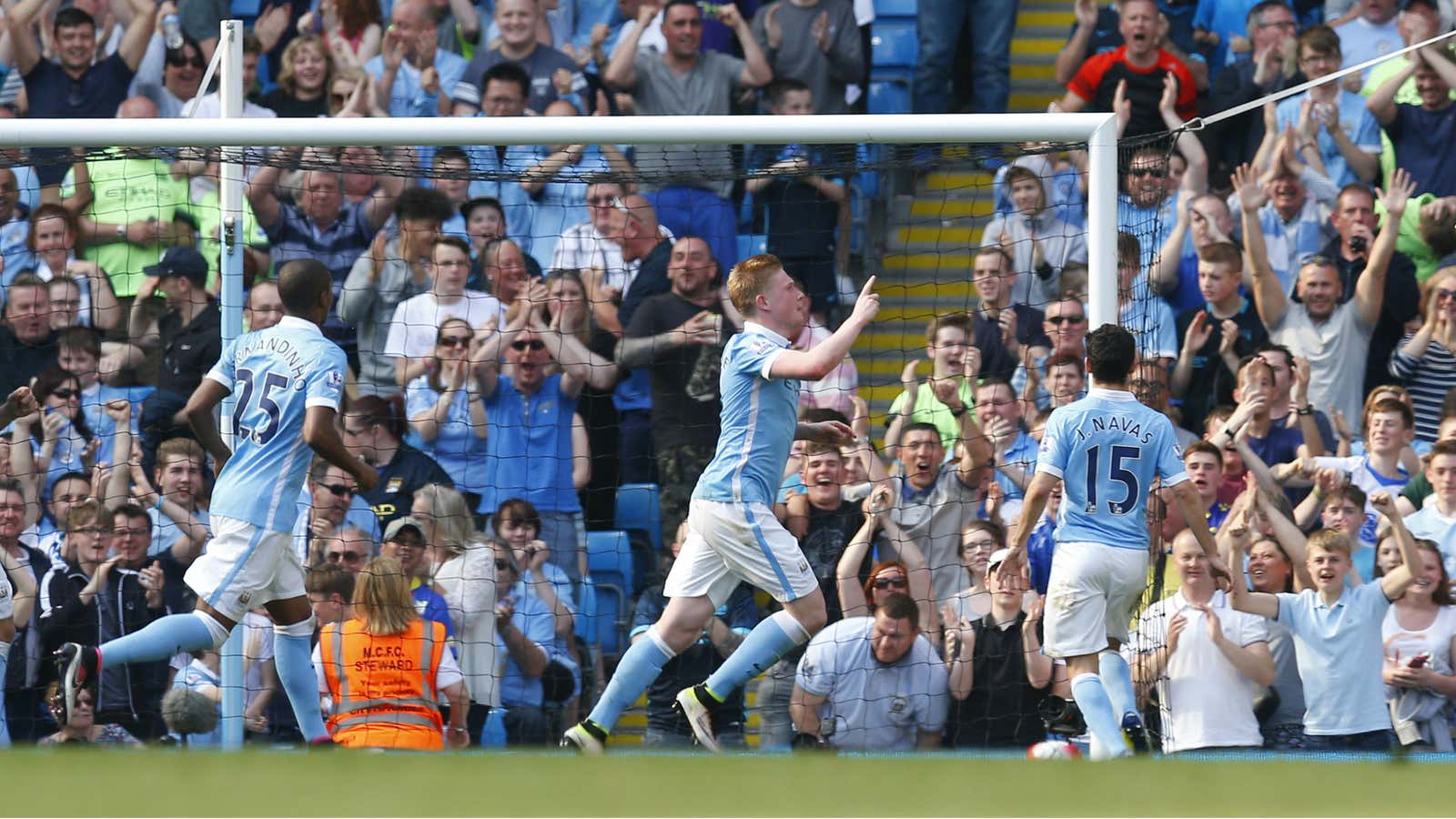Since the mid-2000s, investment in soccer has spiked. Everyone from oil oligarchs and royal families to savvy Chinese and American businessmen have taken ownership of soccer clubs.
The trend appears more common in the UK, home of the Premier League, than it is anywhere else. And a new Forbes report shows that investors who put their money in big UK clubs are getting what they paid for.
England’s traditional “big five” of soccer—Manchester United, Chelsea, Arsenal, Manchester City and Liverpool—have all had new majority shareholders since 2000. While fans may have mixed feelings about their team’s progress in that time, the new owners can hardly complain; the value of some such clubs has grown several times over.
Chelsea, acquired by Roman Abramovich in 2003, experienced the biggest spike in value. The club is now seven times more valuable than it was 13 years ago.
English clubs also dominate the list of the world’s most valuable clubs with six of the top 10. Much of the growth, particularly in English soccer, has been driven by record broadcast deals. The Premier League’s new TV deal for its next three-year cycle starting next season is valued at a record $7.9 billion and could see clubs in the Premier League earn more than $100 million for a single season. England’s broadcast deal dwarfs similar deals across the big five leagues in Europe.
Also crucial to the rising value of English soccer clubs are uniform sponsorship agreements. Manchester United earn £75 million ($108 million) annually from a record deal with German sportswear giants, Adidas. In total, four of the world’s most lucrative “kit deals” are for clubs in England’s Premier League.
But England’s growth in riches has resulted in a rift with local fans who are protesting against exorbitant ticket prices. With clubs making so much from other revenue streams (match-day revenue accounted for less 20% of earnings for the league’s 20 clubs in the 2014/15 season) , fans argue that clubs can afford to offer cheaper tickets.
